Photographs: Vishwesh Krishnamoorthy
Lead vocalist of music band Scribe shares his exciting journey as a young Indian musician.
Vishwesh Krishnamoorthy took some time convincing his parents, for whom music was a very disciplined form of art, about his decision to become a hard rock musician at 19.
"I come from an old generation Bombay household. It took some amount of explaining to my parents because for them music was a very disciplined form of art and what I was going for was far more visceral, raw, new age and contemporary kind of art," says Vishwesh who in the next 11 years has not only carved an identity as a musician but has also emerged as a filmmaker, scriptwriter, actor, voice-over artist, and beatboxer.
Coming from a South Indian family that took its academics very seriously Vishwesh, a top ranker in school, hated memorising.
"I was always creatively inspired. I actually preferred subjective papers because it gave a chance to write. I liked papers where answers needed to be long. I enjoyed writing a lot. From writing it moved to theatrics and I took to the stage very quickly," says Vishwesh animatedly about his transformation from an academically oriented teenager to a multi-faceted artist.
A lead vocalist for music band Scribe, and a director at Prasoon Pandey's Corcoise Films, Vishwesh, an alumni of Don Bosco School, a commerce graduate from SIES College, and a postgraduate in journalism from St Xavier's College, all in Mumbai, shares his thoughts with Prasanna D Zore on the music scene in India, how he manages multiple talents, his transformation as a musician, his inspirations and the one thing that is necessary to emerge successful in any career one chooses.
How did you get interested in theatre?
I started doing theatre in school from childhood. For theatre there is no requisite skill other than acting. Like before you start singing you need to learn how to sing. But dramatics is so instinct driven that it doesn't need any sort of requisite. So I enjoyed it a lot. I did it at every chance I got.
After post graduating in journalism did you ever think of doing a 9 to 5 kind of job?
I had a corporate job with Ogilvy & Mather as a copywriter. It wasn't a 9 to 5 job. It was more of 11 to 11 kind of job. The only difference was they didn't ask you to wear a particular kind of attire to work. I was a copywriter in the ad world and it was a proper day job that I did for four years.
How has your routine changed after joining Scribes?
The band was not something that I started but it is something that I haven't stopped. I have been doing this since I was 19 when I started jamming. You had to somehow manage exams, practise during jam sessions and now it is deadlines and practice. So nothing much has changed.
Success mantra of a young hard rock musician
Photographs: Vishwesh Krishnamoorthy
'The more you do anything the better you will get at it'
You have been described as a multi-talented person. How do you manage to pull this feat without compromising on anything?
A lot of people wear lot of hats, and if you actually sit down to count the number of hats you will see people play dad, coach, team leader and lot of roles in life anyway.
The source of it all is the same for those who do creative pursuits. As children we do a lot of stuff: going to art class, drawing, painting, computers and may be your folks put you in dramatics classes. A lot of stuff that we do as children and for some reason as we grow up, we narrow them down to one thing that we end up doing. I think I didn't choose to do things that way.
I get very excited with things that are made well. Like, if I were to see a good play there is something in me that would say I want to collaborate with this guy. I never stopped myself from doing that. I don't mind starting at the bottom of anything. The more you do anything the better you will get at it.
How did Scribe happen to you?
Scribe happened to me when I was a part of many bands. When I was studying most of my free time I would spend playing with bands, writing music. I was part of four or five bands at the same time. Niraj Trivedi and Srinivaas (Sunderrajan) was the bassist (of Scribe). Neeraj at that time was toying with the idea of starting a hardcore project and we were part of so many genres like hip hop band and when he suggested we start a hardcore band I really liked the idea and I said I will do it.
One thing led to another and I ended up being the vocalist of the band. Neeraj, Srinivaas and I played the drums and guitars for so many bands and after thinking a lot I gave it a go. After a point in time I started enjoying it a lot. I don't remember when that happened but I started liking it.
Success mantra of a young hard rock musician
Image: Mike PattonPhotographs: Jan Frode Haugseth/Wikimedia Common
'Hard rock is cool, edgy and radical'
Your biggest challenge in life...
Figuring out everything that was meant to be done in a day to be done in 24 hours. I wish our days were slightly longer. I wish we had a day where 90 seconds would make one minute.
Your tryst with hard metal and how did it help you evolve as a musician?
There are several things about metal that initially draw you towards the genre and there are different things that keep you within the genre and there are entirely different things that make you feel you represent the genre.
The thing that draws you to a genre is the extremity. The extremity in music is like extremity in anything that you do. For instance, there are many people who use cars or bikes for transportation but there is a group of people on the planet who use cars to do extreme things, to drive really fast. Like to perform stunts.
The same sort of construct, like in guitar-based drums, your ideas in it are far radical and less inclusive and that is what makes it very difficult to acquire. The fact that it is very extreme draws you near it. The fact that it is not normal draws you near it. The fact that it is not soft, mellow music; it is hard and powerful and it is merciless.
I saw a lot of people who would sing soft music and run away from hard rock. That is what made it attractive to me. The fact that hard rock is cool, edgy and radical got me into it.
The names of the bands, songs, albums and the lyrics, there was always something very wacky and wrestler-like in the way metal bands used to look is what I liked about hard metal. From the time I was three year old I used to stand on my toes and look at my chin waiting for the beard to grow. I like that kind of stuff. It's like how people like action films. I like the power in metal music.
What kept me in metal music was the company that I had around me. The band members of Scribe are like my brothers and for so many years of being together and having many, many emotional, expressive moments with them on stage, off stage and in the studio. Hanging out with band members of Scribe and hanging out with members of some other bands like Bhayanak Maut, also helped.
Favourite metal band...
It's a very unfair question. It is like asking which is your favourite film. Well, there are many yaar.
As you said tell us who is the most extreme of all the metal bands that you follow...
I think Mike Patton is an extraordinary human being and musician. He has done lot of bands. He also does creature voices in movies and video games. I really like every thing he does.
Success mantra of a young hard rock musician
Image: Siddharth Basrur of Solo ProjectPhotographs: Siddharth Basrur
'A very exciting future ahead for Indian music bands'
What best describes you?
Fat. No matter what I do, I am a fat guy doing it (laughs out loudly).
Tell us about things that people don't know about you. Tell us some bad things about yourself. People talk only good things about you...
I respond very promptly to any work related communication. But I take a lot of time to get social. If I have to text anything about work I will reply immediately but if I have to chat with somebody than I am a very horrible social networking guy. I only check my work e-mails.
For any artist not replying to her/his fans is not a right thing to do and I think I should improve upon this. I remember feeling so happy when artists who I would write to responded to my e-mails or text messages.
Lesser-known bands in India who you would bet your money on...
I think Siddharth Basrur's Solo Project is something very, very interesting. Pangea is another project which is extraordinary. I can't imagine where this band will go because it is amazing.
This brings me to a related question. Why hasn't the music scene in India produced a world famous band?
I think the Raghu Dixit project would be a world famous band. We don't have a world famous band because we did not have that kind of... Well Shah Rukh Khan is a world famous band except that he is not a band in the sense that SRK's live shows have brought in lots of fans anywhere in the world and it takes as much reach as a world famous band is provided with. No Indian band has that kind of promotional reach.
Everybody knows about a Coldplay or a U2 because there is so much money that is spent on the promotion of these bands. Why do you know about a Spiderman? Why do you about a Dark Knight? No Indian band gets that kind of scale and support. Bollywood perhaps can play a role in making an Indian band world famous because Bollywood works with that kind of numbers and scale.
Indian scene is still Indian. But it is very positive that it is spreading out in so many genres and a large number of artists are coming up. There are more than 80 to 100 artists that are doing live show and gigging and the more the number of people who watch these artists would form these bands and this is helping us form a culture that is making Indian society very healthy.
The more we do stuff like that the more there will be a chance of a world famous band emerging from India. The Raghu Dixit project has certainly proved a point here.
How do international labels treat Indian brands? You must be having an insiders view about it...
I think it is a very exciting future ahead because the quality is improving. What will actually bring the attention of international labels to Indian bands is the way these bands are continuing to write great music. A great body of work makes it that much better for musicians to hit international circuit. To attract international labels we must have a comprehensive body of work, spanning across genres for the people to understand you and your music.
Success mantra of a young hard rock musician
Image: AR RahmanPhotographs: Rediff Archives
'AR Rahman is a national treasure'
People who inspired you...
AR Rahman is someone who I have always looked up to since my childhood days, since I started understanding and making music. As a musician he has rarely let anybody down. I think for an artist to do that for decades is really amazing. He is a national treasure.
Amrish Puri is another person who inspired me. I think he never got the respect he deserved.
Values your parents inculcated in you...
My mother used to say that if you want to become a cobbler go ahead with it. But you should be a cobbler at Nike. She would say this because Nike shoes was most important thing to me as a kid. I was in an all-boys school and it was very important to wear Nike. And that is what has always stayed with me. This means that if you are doing something you should be good at it and if you are not good at it then before you start doing it you should get better and then do it.
Career lessons you learnt...
The most important career lesson I learnt was: take the call, take the fall.
Success mantras...
Take the call, take the fall...
Advice to young Indians...
Make music where you work. It makes your work better.

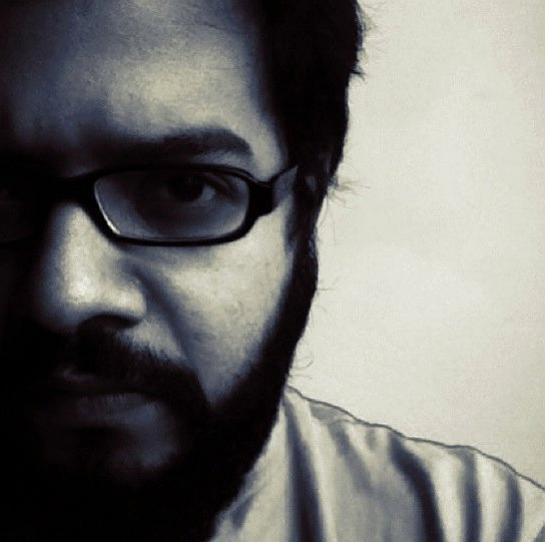
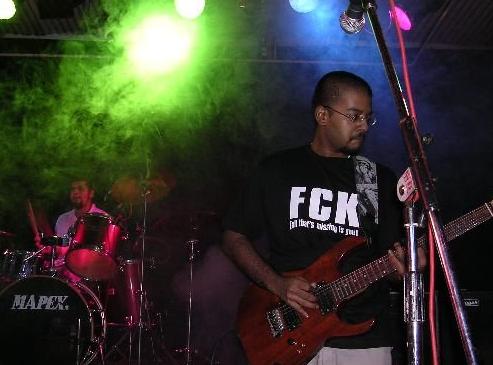
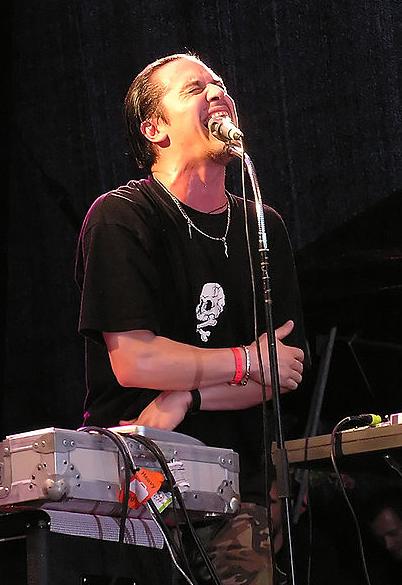
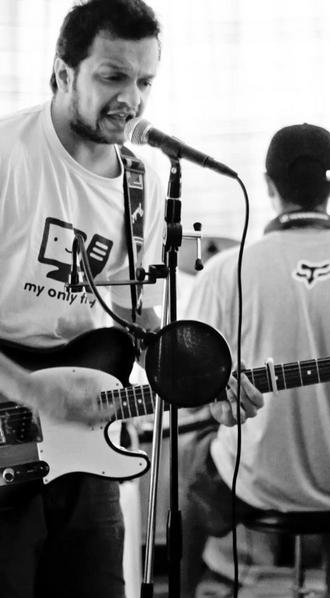
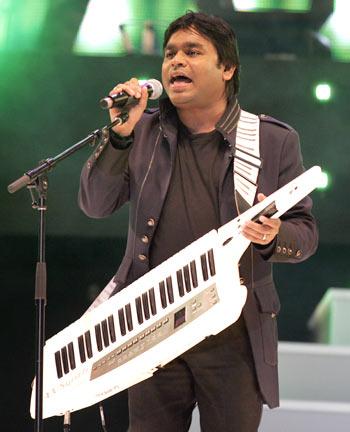
Comment
article